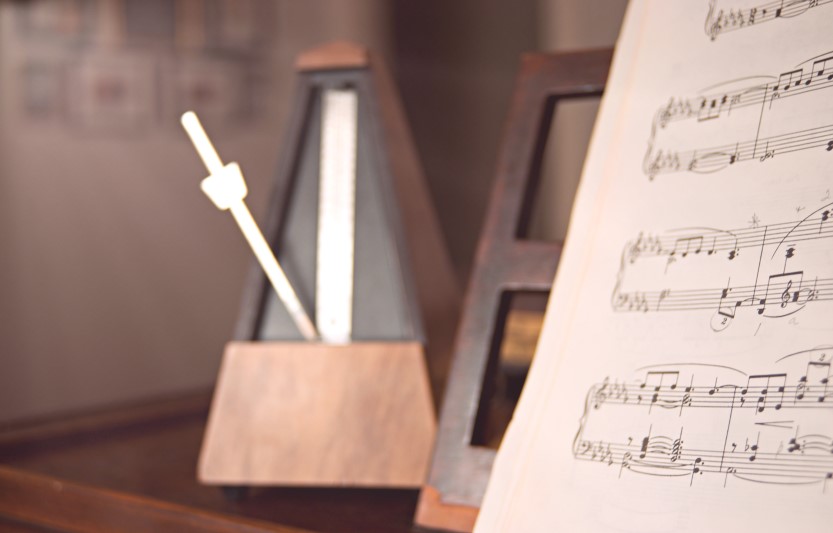
These 4 reasons for practicing with a metronome will help you understand just how important this is.
I know that for some the mere mention of the word “metronome” might make you cringe. Then again, the word “practice” can also make some turn the other way. However, if you want to get better as a musician, no matter what level you’re on, then keep reading.
Simply said, the metronome is the most important tool to have when you practice. They come in many models and types, including vibrating metronomes. Check out our Roadie 3 Tuner, as it incorporates a vibrating metronome that will keep you in time. Without further ado, here are the 4 reasons for practicing with a metronome.
It tracks your progress
Using a metronome is one of the best ways to track your progress. If there is a passage or solo that is just too fast, you have to start off really slow. How slow? As slow as you can play it. See how slow that is and clock it on the metronome. Once you do that, make sure you can play the passage in question well. Then, speed up your metronome just a bit. Make sure you can play the passage well at that new speed. Then you keep repeating the process until you achieve the desired pace.
This can take some time depending on what you’re working on. However, this is time very well invested. Once you can play the musical part in question at full speed, you will have become a better musician in the process. The best is if you write down the speeds and dates when you achieve them, to keep a log for practicing purposes.
It keeps you from dragging or rushing
Most musicians have a tendency to either drag or rush time when playing. A metronome keeps you on track with the appropriate tempo. Additionally, a metronome will reveal what your tendency is so you can understand it and start working on it. When using this tool, really listen to the beat so you can play with it, not against it.
It develops good internal time
If you practice effectively with a metronome, you will undoubtedly develop great internal time. What does that mean? It means that once when you show up at the gig and play, you won’t be rushing or dragging. Instead, you’ll be playing on time and adding to the overall groove, not detracting from it. Having good internal time is imperative if you want to be a good musician. Let me say it another way: a good musician does not have bad time.
It prepares you to record
Recordings are almost always done to a click. What is a click? It is a metronome. Yes, when you record, the engineer or producer will set up a tempo and click that everyone must adhere to. Surely enough, if you have a tendency to drag, and your drummer has a tendency to speed up, the recording will be a disaster. A click or metronome shows everyone exactly where the beat is.
Naturally, if you don’t practice with a metronome, recording to one will be a failure. Even if you just want to record yourself (and you should), you need to be able to play to a click track (also known as a metronome).
Hopefully, these 4 reasons for practicing with a metronome will convince those that are still a bit skeptical. A metronome is simply a fantastic tool that can help you more than you can imagine. Trust me, your favorite guitar hero probably spent endless hours practicing with a metronome. Take the time to employ one in your practice sessions, and you will see your musicianship, technique, and ability increase by leaps and bounds. And who doesn’t want to become a better musician?


